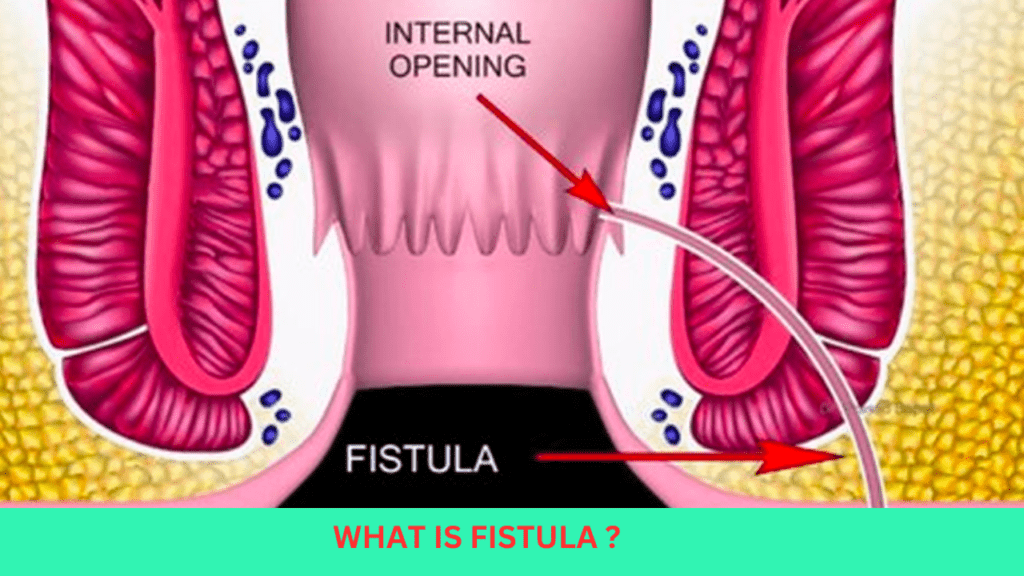
How can I close my fistula without surgery? This is the main question comes in mind before going to surgery.
Fistulas, painful and debilitating, can significantly impact one’s quality of life. In this article, we’ll explore the nature of fistulas and highlight five essential homeopathic remedies that have proven highly effective in managing this condition. While fistulas can be distressing, homeopathic treatment offers a potential path to cure. This article delves into the complexity of fistulas and the promise of homeopathic approaches in treating them.
Understanding Fistulas and Effective Homeopathic Remedies
Table of Contents
Fistulas are painful and debilitating conditions that can significantly impact one’s quality of life. This article explores the nature of fistulas and highlights five essential homeopathic remedies that have proven to be effective in managing this condition.
What is a Fistula?
Medically, a fistula is an abnormal passage that forms between two organs or vessels in the body. These unnatural connections can arise due to various reasons, such as infections, inflammatory diseases, surgical complications, or congenital factors.
Types and Symptoms of Fistulas
Fistulas can develop in numerous parts of the body, including the digestive tract, urinary system, heart, and skin. Symptoms vary depending on the fistula’s location but commonly include persistent pain, swelling, pus formation, and bleeding. If left untreated, fistulas can lead to severe complications.
Causes of Fistula
Understanding the underlying cause of a fistula is crucial for effective treatment. Common causes include chronic infections, conditions like Crohn’s disease, and physical injuries. Identifying the root cause helps in tailoring an appropriate treatment strategy.
How can I close my fistula without surgery?
Closing a fistula without surgery can be challenging, but certain non-surgical approaches may help manage and potentially heal the condition. These methods often focus on reducing inflammation, promoting drainage, and supporting the body’s natural healing processes. Here are some non-surgical approaches to consider:
1. Homeopathic Remedies
A Holistic Approach
Homeopathy offers a comprehensive approach to treating fistulas by considering both physical symptoms and the patient’s emotional and mental state. This holistic perspective ensures that treatment addresses the individual as a whole.
Personalized Treatment
Homeopathy recognizes that each person’s experience with a fistula is unique. Therefore, remedies are customized to match the individual’s specific symptoms and overall constitution, providing a personalized path to healing.
Conventional Treatments vs. Homeopathic Remedies
While conventional medicine often involves surgical procedures and medications to treat fistulas, these methods can sometimes lead to complications or unsatisfactory results. Homeopathy presents a viable alternative, aiming to stimulate the body’s natural healing processes to fistula without surgery.
Embracing Homeopathy for Fistula Treatment
Homeopathy focuses on activating the body’s vital force to restore balance. In the case of fistulas, a skilled homeopath selects remedies that address the individual’s symptoms and the root cause of the condition. With regular treatment and proper guidance, homeopathy can lead to significant improvements and potential cures.
Five Essential Homeopathic Remedies for Fistula without surgery
1. Silicea
– Excellent for connective tissue health, Silicea aids in expelling foreign substances and promoting natural healing.
2. Myristica Sebifera
– Known for accelerating the suppuration process, this remedy helps the body expel pus, facilitating faster recovery.
3. Hepar Sulphur
– Effective in cases of extreme sensitivity and tenderness, Hepar Sulphur reduces inflammation and speeds up healing.
4. Calcarea Sulphurica
– Often used for chronic conditions, this remedy supports wound healing and infection resolution.
5. Graphites
– Beneficial for slow-healing wounds and skin disorders, Graphites alleviates discomfort and promotes recovery.
Advantages of Homeopathic Treatment
– Non-Invasiveness: Homeopathy offers a gentle, non-invasive alternative to surgery.
– Individualized Care: Treatments are tailored to the unique needs of each patient.
– Preventive Potential: Homeopathy aims to prevent future recurrences of fistulas.
– Minimal Side Effects: When used correctly, homeopathic remedies have minimal risk of adverse effects.
Integrating Homeopathic Remedies into Your Treatment Plan
Consulting a Professional
For accurate diagnosis and tailored treatment of fistula without surgery, it’s crucial to consult a qualified homeopath.
Dosage and Administration
Adhere strictly to the dosage and administration guidelines provided by your homeopath to achieve optimal results.
2. Diet and Lifestyle Changes
- High-Fiber Diet: Prevents constipation and reduces strain during bowel movements. Include fruits, vegetables, whole grains, and legumes.
- Hydration: Take the adequate amount of water for soft stool and it prevent constipation.
- Avoid Irritants: Minimize intake of spicy foods, caffeine, and alcohol, which can irritate the digestive tract.
3. Herbal Remedies
- Turmeric: Has anti-inflammatory and antimicrobial properties. Consuming turmeric milk or using turmeric paste on the affected area may help.
- Aloe Vera: Known for its soothing and healing properties, aloe vera gel can be applied to reduce inflammation.
4. Sitz Baths
Regular warm sitz baths can help keep the area clean, reduce pain, and promote healing. Sit in a tub of warm water for 15-20 minutes several times a day.
5. Probiotics
Taking probiotic supplements or consuming probiotic-rich foods like yogurt, kefir, and sauerkraut can improve gut health and support the immune system.
6. Anti-inflammatory Medications
Taking Allopathic medicines to reduce pain and inflammation.
7. Antibiotics
If an infection is present, antibiotics may be prescribed to manage the infection and reduce inflammation.
8. Fibrin Glue
A healthcare professional can inject fibrin glue into the fistula tract to close it. This method is less invasive than surgery but may not be suitable for all types of fistulas.
9. Kshar Sutra Therapy
An Ayurvedic treatment involving the application of a medicated thread (Kshar Sutra) to the fistula tract. It helps in draining the pus and promoting healing.
FAQs About Fistulas and Homeopathic Treatment
Q: Can homeopathy completely cure a fistula?
A: While outcomes vary, many individuals have experienced full recovery with homeopathic treatment.
Q: How long does it take to see improvements with homeopathic treatment?
A: The time it takes to see improvements with homeopathic treatment can vary significantly depending on several factors, including the individual’s overall health, the severity of the fistula, adherence to the prescribed treatment plan, and how well the selected remedy matches the person’s specific symptoms. Some individuals may begin to notice relief within a few weeks, while others might require a longer period of consistent treatment to experience significant improvements.
Q: Are there dietary restrictions during treatment?
A: Consult your homeopath for personalized dietary advice, as recommendations can vary.
Q: Can conventional and homeopathic treatments be combined?
A: Yes, integrative approaches can be effective. Consult both your conventional and homeopathic practitioners.
Q: Are there any known contraindications?
A: Homeopathic remedies are generally safe, but disclose all treatments to your homeopath to avoid interactions.
Finding a Qualified Homeopath
Seek recommendations from trusted sources and ensure the homeopath is accredited and experienced to treat fistula without surgery.
Additional FAQs
1. Can these remedies be used alongside conventional treatment?
Yes, but consult your healthcare provider.
2. How many days it take to see results?
Improvement timelines vary; some may see relief within weeks, others may take longer.
3. Are there side effects?
Homeopathic remedies are typically safe and well-tolerated.
4. Where can I find these remedies?
Available at specialized homeopathic pharmacies and online stores.
5. Is homeopathy suitable for all ages?
Yes, it is safe for all ages, including infants and the elderly.
Conclusion
Exploring homeopathic treatment for fistulas offers a promising, holistic approach to healing of fistula without surgery. It’s essential to consult with qualified healthcare professionals to determine the most appropriate course of action for your specific situation. By understanding the causes, recognizing symptoms, and incorporating the right remedies, individuals can achieve significant relief and recovery with homeopathy.





Hi friends, please give your comments about your queries and suggestions.